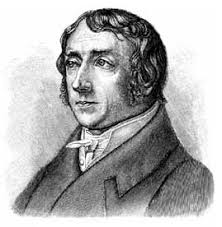
B. G. Niebuhr
Barthold Georg Niebuhr (August 27, 1776 - January 2, 1831) was a Danish-German statesman, banking and historical committee of Germany. Classical Rome (not Greece) caught the admiration of German thinkers. By 1810, Niebuhr inspired German patriotism among students at the University of Berlin with his analysis of Roman economics and management. He was the leader of the Romantic era and a symbol of the German national spirit that arose after the defeat in Jena. He was also deeply rooted in the classical spirit of the Enlightenment in his intellectual abilities, in his use - philological analysis and his emphasis on general and particular phenomena in history. Niebuhr was born in Copenhagen, in the family of Karsten Niebuhr, a famous German geographer who lives in this city. His father provided his early education. By 1794, the early young Niebuhr had already become an experienced classical scholar who read several languages. He entered Kiel University, where he studied law and philosophy. There he made friends with Madame Hensler, the widowed bride of one of the professors, six years older than himself. Amelie Behrens. In 1796, he left Kiel and became the personal secretary of the Danish Minister of Finance, Earl Schimmelmann, but in 1798 he was refused this appointment and a meeting was held the year spent in Edinburgh, studying agriculture and physics. He said: “My early residence in England gave me one important key to Roman history. It is necessary to understand civic life through personal observation. I could never understand a number of things in the history of Rome.

